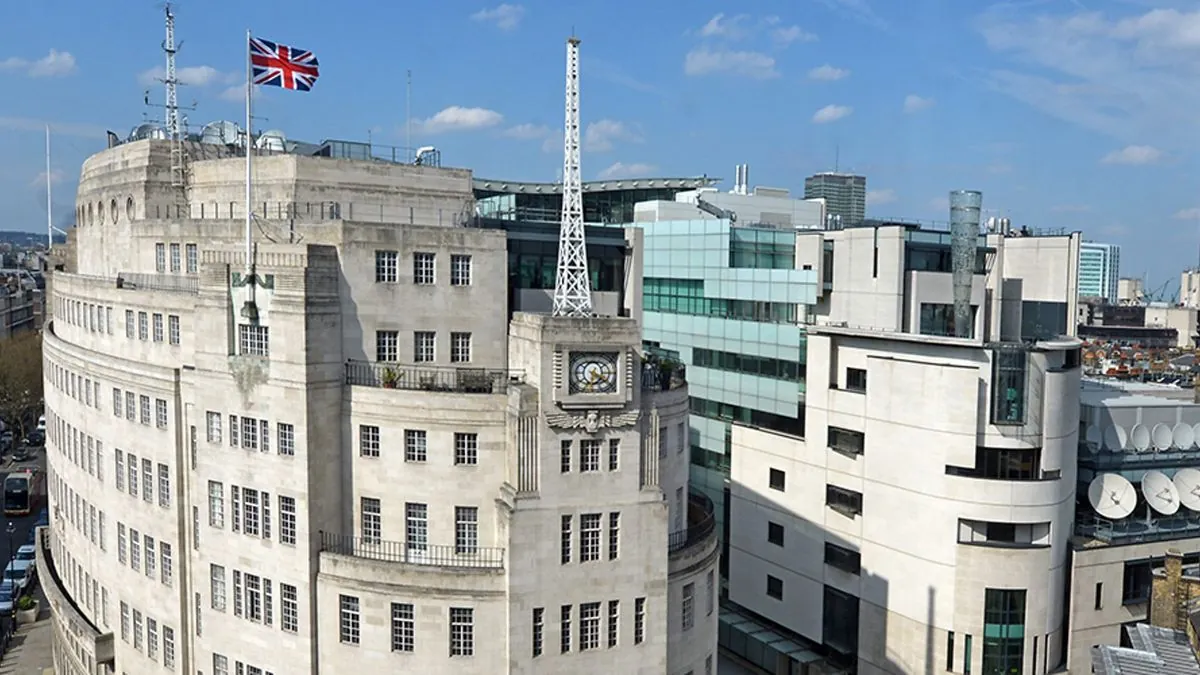The British Broadcasting Corporation (BBC), the world's oldest national broadcasting organization founded in 1922, faces intense scrutiny over its coverage of the Israel-Hamas conflict. A recent analysis, known as the Asserson Report, has brought to light significant concerns regarding the broadcaster's adherence to its core editorial value of impartiality.
The report, compiled by a team of legal experts and data scientists, examines the BBC's reporting over several months following the October 7, 2023 attacks by Hamas, an organization designated as terrorist by numerous countries. The findings suggest a pattern of bias and inaccuracies in the BBC's coverage, with particular criticism directed at BBC Arabic, one of the corporation's oldest foreign language services launched in 1938.
Critics argue that the BBC has failed to maintain objectivity in its reporting on the conflict. The corporation's reluctance to label Hamas as a terrorist group and its alleged misrepresentation of events have raised questions about its editorial standards. These concerns are particularly significant given the BBC's global reach, with a weekly audience of approximately 468 million people across more than 40 languages.
The impact of potentially biased reporting extends beyond the UK. Israel, while making progress in dismantling Hamas's infrastructure in Gaza, has struggled to counter what some perceive as a campaign of disinformation in Western media. This situation underscores the critical role that major news organizations play in shaping public opinion on international conflicts.
In response to these issues, there are growing calls for an independent inquiry into the BBC's coverage of the Israel-Hamas war. Danny Cohen, a former BBC executive, has described the situation as an "institutional crisis" at the national broadcaster. This sentiment reflects a broader loss of faith in the BBC's ability to report impartially on complex geopolitical issues.
The controversy surrounding the BBC's coverage highlights the challenges faced by media organizations in maintaining impartiality in an era of sophisticated disinformation campaigns. As the Israeli-Palestinian conflict, ongoing since the mid-20th century, continues to evolve, the need for accurate and unbiased reporting becomes increasingly crucial.
"An independent inquiry into the coverage of the Israel-Hamas war is necessary to address what is now an institutional crisis at our national broadcaster."
The BBC, primarily funded through television licensing fees in the UK, has a responsibility to uphold its editorial guidelines, which emphasize impartiality as a core value. The current situation raises questions about the effectiveness of regulatory oversight, especially since the BBC Trust was replaced by Ofcom in 2017.
As the debate continues, it is clear that the BBC must address these concerns to maintain its credibility as a trusted news source. The corporation's response to this criticism will be closely watched, not only by its audience but also by media watchdogs and international observers. The outcome of this scrutiny could have far-reaching implications for the future of public broadcasting and the reporting of complex global conflicts.
